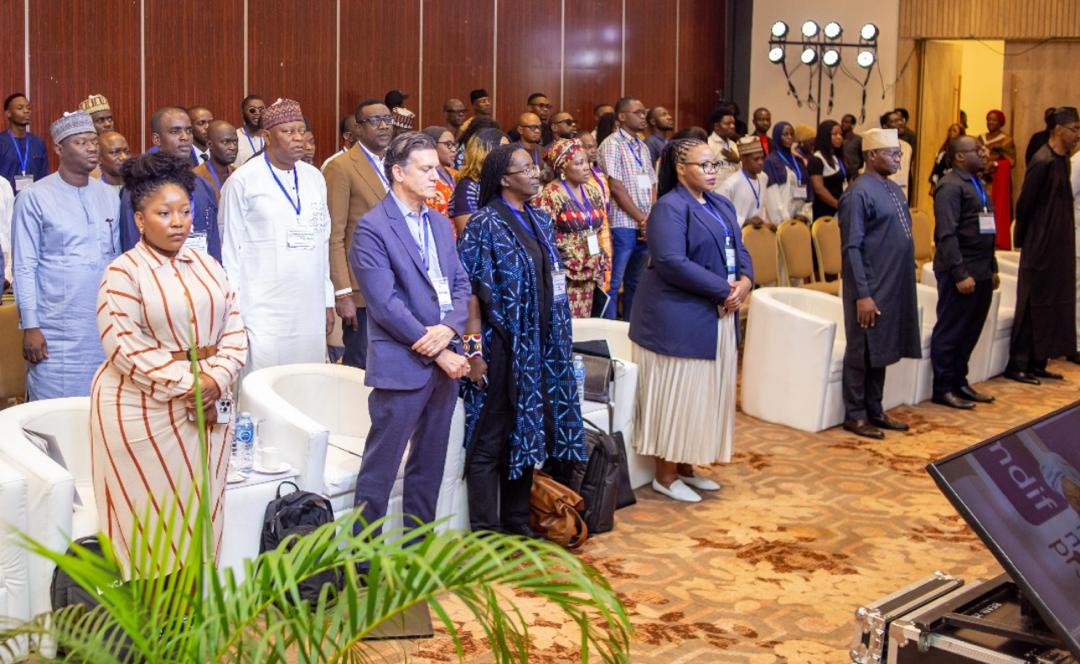Key points:
- Publication must carve a niche for itself
- Build an audience-base
- Media products must come in quality that audience can pay for
- Engage in constant innovation
- Leverage technology for content creation and marketing.
On Wednesday, July 30, and Thursday, July 31, 2025, media entrepreneurs, innovators, scholars, and policymakers gathered at the Ladi Kwali Hall of the Abuja Continental Hotel to address the existential challenges confronting the industry. The conference, themed “Future-Proofing Journalism in Nigeria,” was organized to explore strategies for ensuring media sustainability in the country. It was jointly convened by the Daily Trust Foundation—the non-profit arm of Media Trust Group—and the Media Development Investment Fund (MDIF), a New York-based non-profit that offers financial support and strategic advice to independent media organizations.
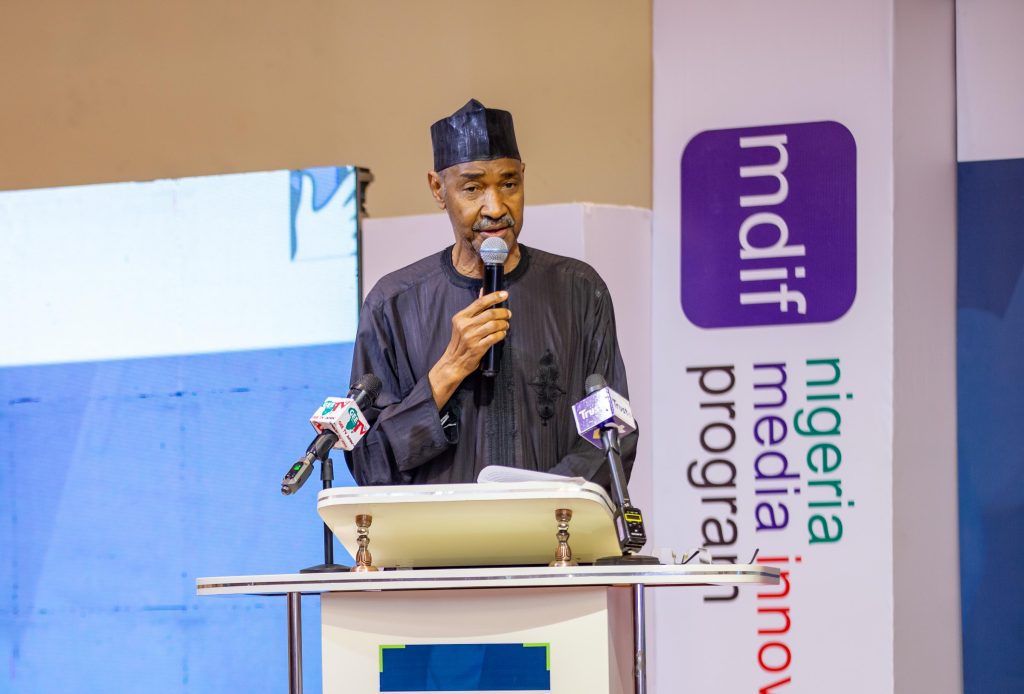
Both organizations have consistently supported journalists and media outlets over the years. The Daily Trust Foundation, with funding from the MacArthur Foundation, has trained hundreds of journalists, while MDIF has provided funding and advisory services to Nigerian media start-ups over the past three years. The conference brought together around 200 participants and served as a platform to exchange insights from Nigeria and beyond through keynote speeches, research presentations, personal narratives, interviews, and panel discussions.
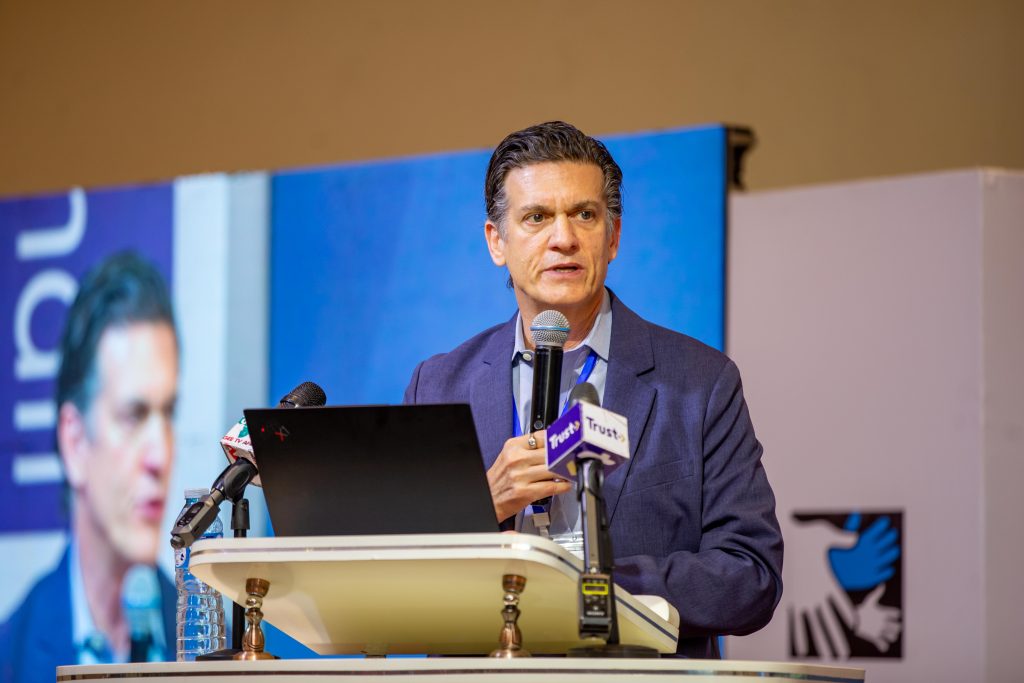
In his goodwill message, Dr. Kole Shettima, Director (Africa) of the MacArthur Foundation, reaffirmed the Foundation’s commitment to media sustainability. He emphasized that financial independence is essential for media organizations to fulfill their constitutional role of holding the government accountable. The Foundation’s support for the Daily Trust Foundation and MDIF in hosting the conference, he said, was rooted in the belief that only a sustainable media can strengthen Nigeria’s democracy.
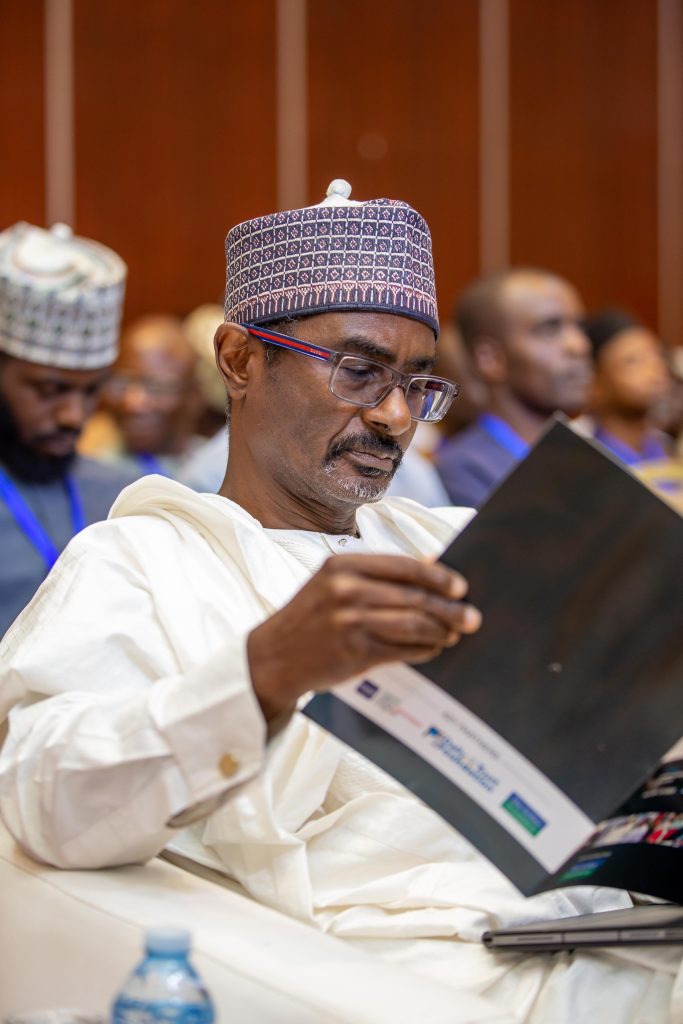
Malam Kabiru Yusuf, Chairman of Media Trust Group, shared the company’s journey toward media sustainability with candor and clarity. One statement from his 20-minute talk stood out: “It’s a business,” he declared, after recounting his experiences at The Guardian, Triumph, Today, Citizen, and the BBC, before founding Daily Trust. He explained that the founders of Media Trust Group had to learn the business side of media. “We attended business schools like Lagos Business School and Harvard to understand the commercial dynamics. Without a viable business model, content creation becomes unsustainable,” he said.
He outlined the responsibilities of a media entrepreneur as follows:
- Carve out a niche
- Identify and grow the audience
- Produce monetizable content
- Follow audiences across platforms and mediums
- Earn and maintain audience trust
These principles guided Media Trust Group’s evolution from publishing the Daily Trust newspaper to launching platforms such as Trust TV, Trust Radio, Digital Trust, Aminiya (a Hausa-language newspaper), Teen Trust, and other specialized publications.
“The story of Media Trust is simple but also quite complex,” Malam Kabiru remarked.
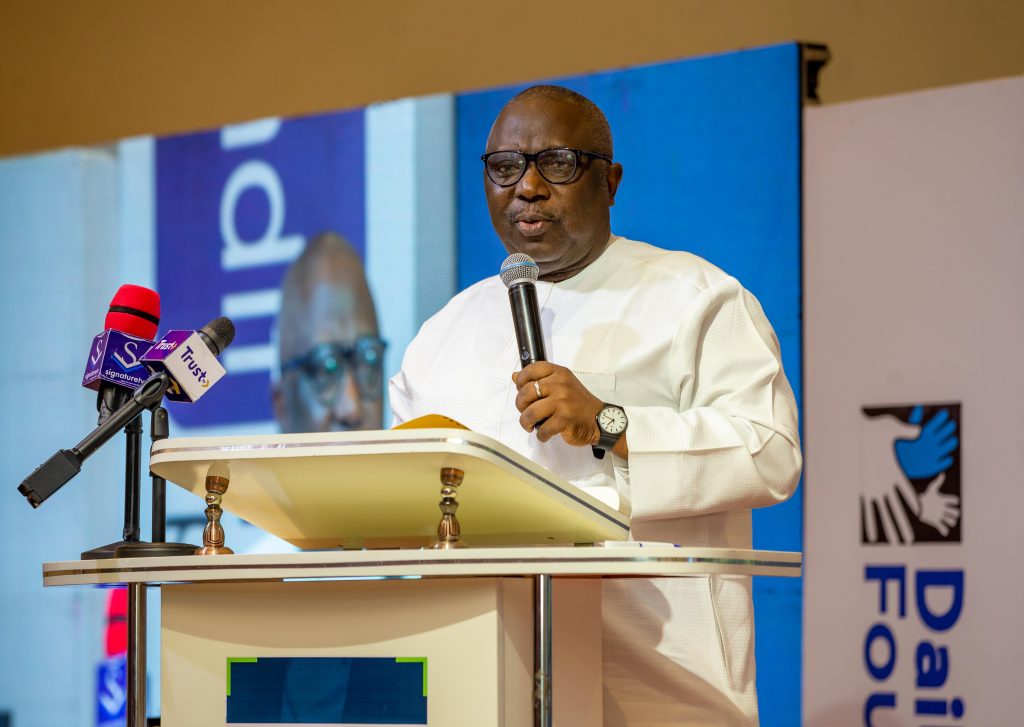
The keynote speaker, Mr. Dapo Olorunyomi—founder of Premium Times and other media innovation ventures—presented a paper titled “Emerging from Roots to Reach: Reimagining Africa’s Newsroom.” He analyzed the multifaceted challenges facing Nigeria’s media industry, showcased examples of how African media outlets are adapting, and proposed strategies for Nigerian media start-ups to remain viable and sustainable. His framework for sustainability included four pillars:
- Financial sustainability
- Technological adaptation
- Audience-centric journalism
- Institutional resilience
Mr. Olorunyomi described the media’s current predicament: “Financial sustainability remains the most pressing concern. The over-reliance on advertising is no longer viable, compelling media outlets to explore diverse revenue models. In Zimbabwe, 263Chat pioneered crowdfunding and SMS subscriptions, enabling readers to support journalism directly. Nigeria’s PREMIUM TIMES, through its sister organization CJID, secures its future via donor-funded investigations, partnering with foundations like MacArthur, Gates, and Open Society to fund impactful reporting while preserving editorial independence.”
He noted that hybrid revenue models are gaining traction, combining income from events, training programmes, and grants. Some publishers are even licensing content to AI developers to ensure fair compensation when their work is used to train algorithms. However, he cautioned that these models carry risks—foreign donor dependence may influence editorial priorities, and ethical concerns around AI partnerships remain unresolved.
Technological adaptation, he argued, is equally vital. AI and automation offer tools to boost efficiency and reach. For example, Nigerian startup AFRIpods uses AI-driven transcription to convert podcasts into local languages, making content accessible to non-English speakers. Similarly, CJID’s suite of AI platforms provides insights into emerging tech trends.
Mr. Olorunyomi also proposed ten strategies for transforming media organizations into sustainable entities:
- Collaboration
- Workflow restructuring
- Mass self-communication
- Talent development
- Business literacy for journalists
- Building audience trust
- Platform diversification
- Policy advocacy against censorship and unfair competition
- Legal and strategic engagement
- Holistic transformation through leadership and investment
Mr. Bilal Randeree, MDIF’s Chief Programme Officer, shared insights from the Nigeria Media Innovation Programme (NAMIP), highlighting global habits of sustainable media. His recommendations included:
- Transparency and environmental accountability
- Adapting to shifting platform and audience behaviors
- Building trust and combating misinformation
- Innovating business models for financial sustainability
- Strengthening resilience through community engagement
- Investing continuously in technology and talent
He urged media owners to engage audiences in two-way communication and to clearly define their business models. “Ensure that expenditure never exceeds revenue,” he advised.
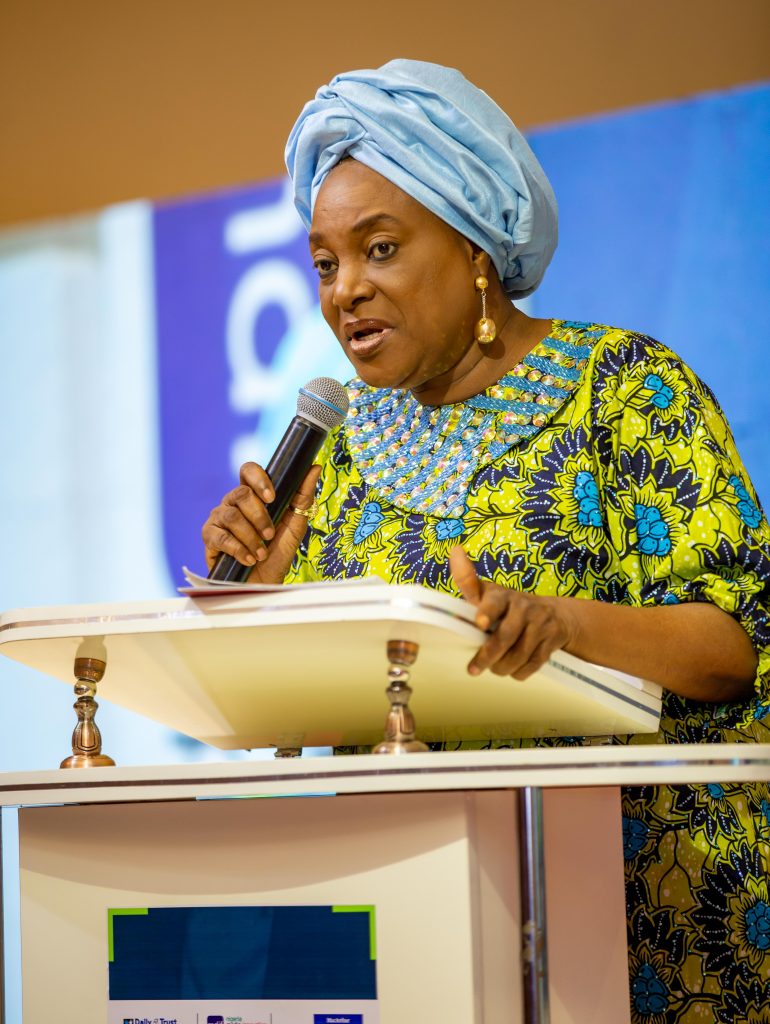
Professor Umar Pate, Vice-Chancellor of the Federal University in Kashere, Gombe State, presented a research paper on media sustainability in Nigeria. He examined global shifts in the media landscape and noted that Nigerian media outlets are slow to adapt to new platforms, technologies, collaborations, and revenue models. He acknowledged that many constraints stem from environmental factors beyond the media’s control.
Professor Pate described the current media environment as follows: “The Nigerian media industry is grappling with challenges in funding, technology, content, credibility, press freedom, and professional safety. These are compounded by fragmentation, shifting consumption habits, reduced attention spans, and the emergence of new media owners. Political interference, low investment, and unfavorable operating conditions persist. While young Nigerians are increasingly disconnected from traditional media, older citizens still value credible broadcast journalism.”
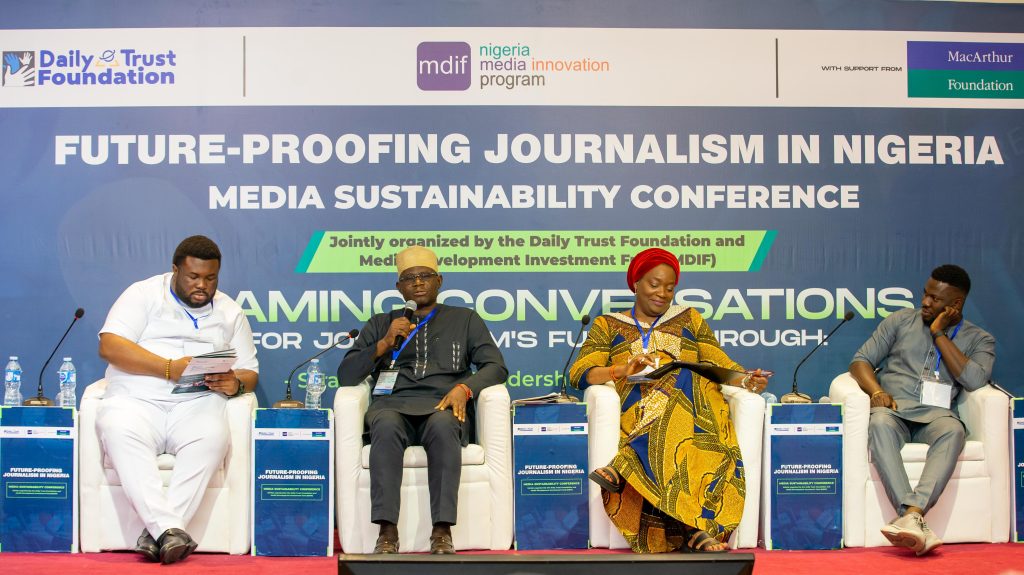
He concluded that strategic leadership and innovation are essential for media sustainability.
“Media houses must innovate—not just report on change, but embody it. Invest in content and IT, reinvent business models, identify market needs, and adopt a consumer-centric approach. Collaboration and partnerships are key,” he emphasized.
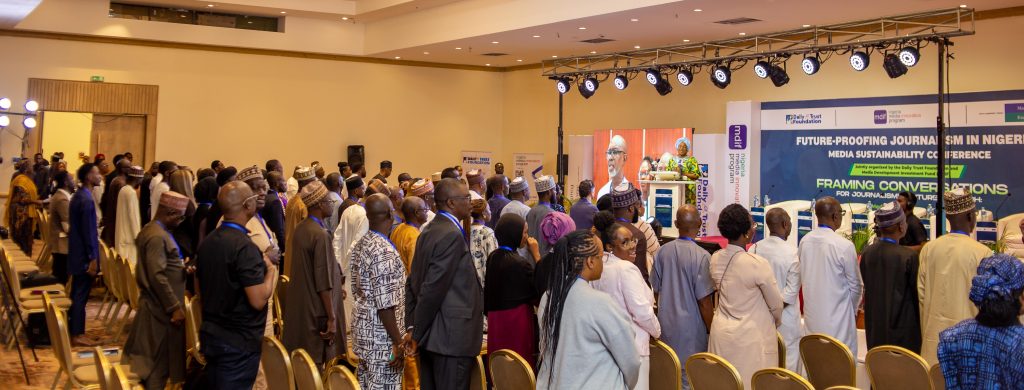
The MDIF team, led by Deji Adekunle, Programme Director and Oluwadara Ajala, Programme Manager, showcased the outcome of their work on media sustainability with over 20 media start-ups in Nigeria. Under the project the team supported support independent media organizations through beefing up the capacity of their leaders and staff members, guiding them in generating sustainable revenue streams, and building larger audiences.
The programme covered a mix of grant funding, technical assistance, and strategic capacity building for beneficiaries. The outcome of the project indicated that media start-ups in Nigeria could survive the adverse economic weather if they are strategic about carving a niche for themselves, recruit staff that possess the skills set to produce contents that meet the information needs of segments of the society, and if they are deliberate about management and revenue generation.
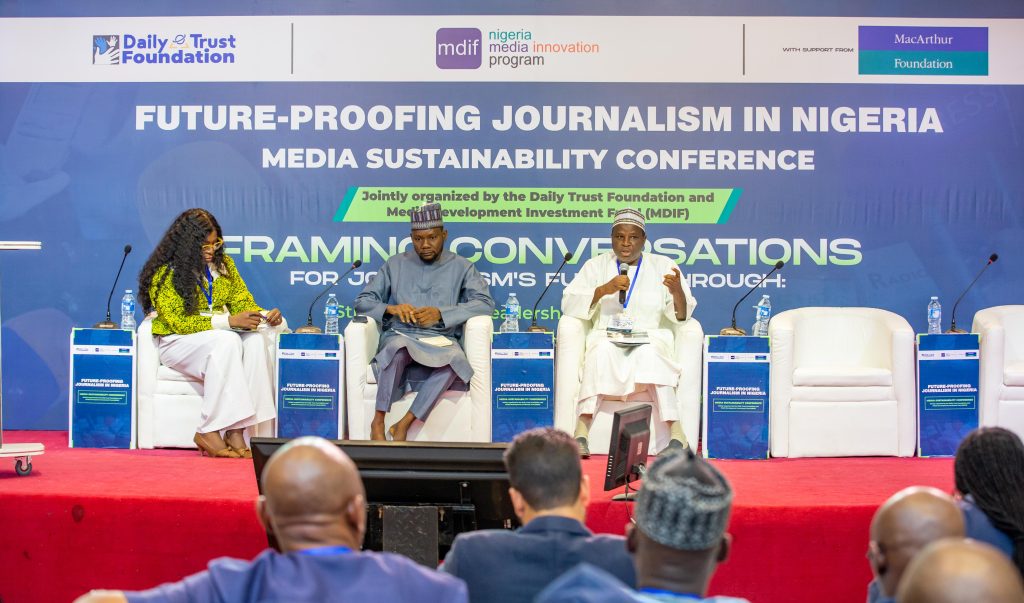
Naziru Mikali Abubakar, Former Editor-in-Chief, Daily Trust, and Dara Ajala, NAMIP Program Manager, MDIF, during a panel discussion on the Media Sustainability Report
Many major players in Nigeria and the global media industry featured in interviews and panel discussions. They include the Chairman of the Daily Trust Foundation, Malam Bilya Bala; the Chief Executive Officer of MDIF, Mr Harlan Mandel; Mr Bilal Randeree, Chief Programme Officer, MDIF; a former Managing Director of Daily Trust, Chief Isiaq Ajibola; a former Chief Executive Officer/Editor-in-Chief of Daily Trust, Malam Mannir Dan-Ali; a former Editor-in-Chief of Daily Trust, Naziru Mikhail Abubakar; and Professor Suleiman Yar’Adua, of Bayero University, Kano.
Others include Ms Catherine Gicheru, NAMIP AC Chair; Mrs Eugenia Abu, a former Executive Director at the Nigerian Television Authority (NTA); Mr Lekan Otufodurin of the Media Career Development Network; Mrs Motunrayo Alaka of the Wole Soyinka Centre for Investigative Journalism (WSCIJ); Mr Chude Jideonwo, the CEO of Joy Inc; Mrs Ruona Meyer, an investigative journalist and media trainer, Toun Okewale-Sonaiya, the CEO of Women Radio, among other speakers and panelists.
(The live coverage of the two-day event is available on the links below).

